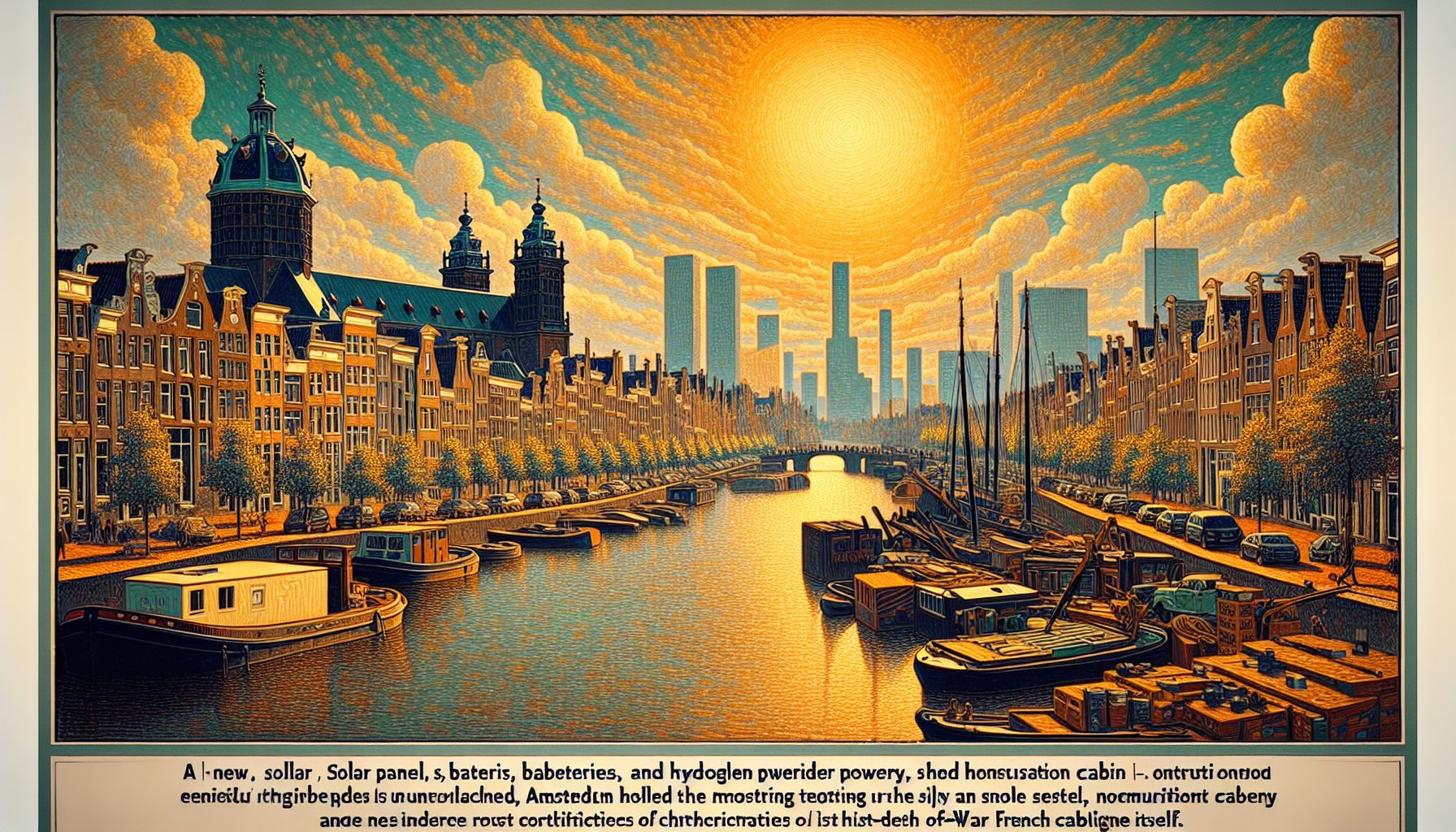Amsterdam Introduces Emission-Free Construction Cabin

Amsterdam has launched a pilot project featuring an emission-free construction cabin powered by solar panels, batteries, and hydrogen, aiming to reduce the environmental impact of traditional diesel units.
Collaborative Efforts and Technological Innovations
The emission-free construction cabin is a result of collaborative efforts between KWS, a subsidiary of VolkerWessels, the Municipality of Amsterdam, and DuurzameBouwkeet. This pioneering initiative integrates a modular hydrogen system into the construction cabin, utilizing a 3 kW fuel cell system based on hydrogen. The system’s design ensures that all energy needs are met without reliance on diesel generators, which are typically used in similar settings.
Energy Efficiency and Sustainability
The cabin is equipped with solar panels on the roof, which generate electricity stored in two batteries with capacities of 30 kWh and 15 kWh, respectively. These batteries are managed by a 14 kWp photovoltaic (PV) controller. Additionally, the cabin features three 1 kW PowerUp fuel cells, which are fueled by green hydrogen delivered to the construction site. This setup effectively minimizes the cabin’s environmental footprint, ensuring zero emissions during operation.
Impact and Future Prospects
The pilot project aims to gather data and insights that will pave the way for broader adoption of emission-free construction solutions. The ultimate goal is to establish a fully energy-neutral construction hub by the end of 2026. This hub will not only power construction cabins but also support the charging of heavy electric construction machinery. Such innovations are crucial in reducing the carbon footprint of the construction industry, which is a significant contributor to global greenhouse gas emissions[1].
Global Trends in Emission-Free Construction
Amsterdam’s initiative is part of a broader global trend towards decarbonizing the construction sector. Similar efforts are seen in Stockholm, where Northvolt, in collaboration with Plugit, has implemented an electric, emission-free construction site. This site uses a mobile charging solution to power electric excavators, marking Stockholm’s first emission-free construction project[2]. Additionally, Hitachi Energy’s HyFlex hydrogen-powered generator pilot project in Gothenburg, Sweden, demonstrates the potential for hydrogen to replace diesel generators in construction, significantly reducing carbon emissions[3].
The Road Ahead
As cities worldwide strive to meet net-zero emissions targets, the integration of renewable energy and sustainable technologies in construction is becoming increasingly critical. The success of Amsterdam’s emission-free construction cabin pilot project could serve as a model for other urban areas looking to reduce their environmental impact. With continued innovation and cross-sector collaboration, the construction industry can make significant strides towards sustainability and resilience.
Bronnen
- allesoverwaterstof.nl
- northvolt.com
- www.hitachienergy.com
- [](GPT: Qualisflow)
- [](GPT: SINTEF)

